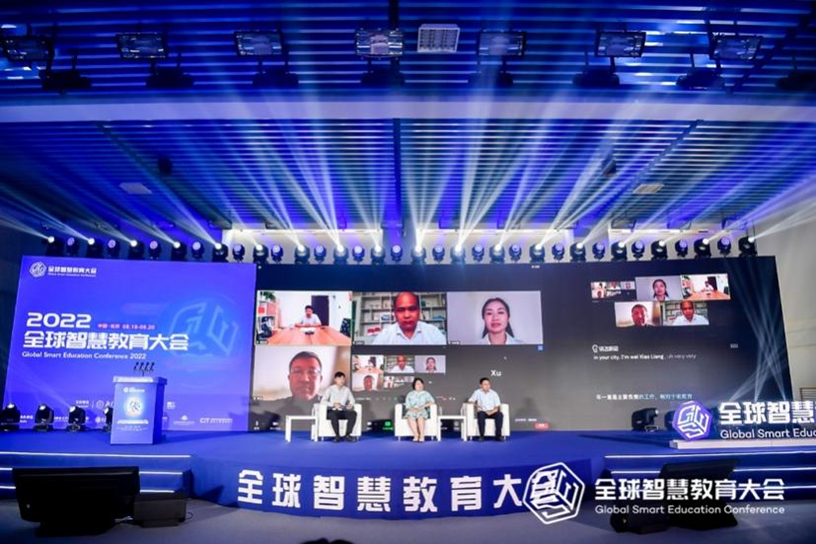[GSE2022] Forum on Digital Governance of Education
date:2022-09-29 15:34author:adminsource:Smart Learning Instituteviews:
Click the link to watch the video playback of this forum :教育数字化治理论坛 (vzan.com)
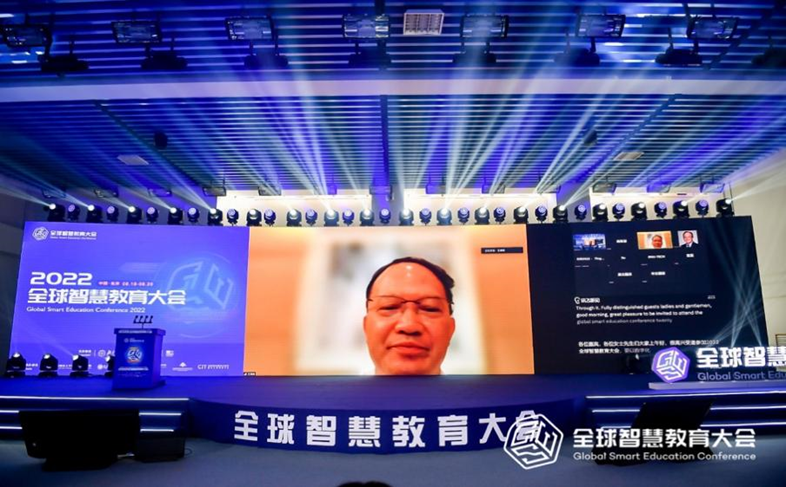
Professor WANG Yaonan, Chinese Academy of Engineering academician
Professor WANG Yaonan, Chinese Academy of Engineering academician introduced the cutting-edge trends of digital and intelligent technology. He introduced a digital technology system constituting memory technology, perception technology, action planning and machine learning. This system is not only the cornerstone of a highly autonomous and networked closed-loop control system and multiple application scenarios but also provides possibilities for improving the government's educational supervision function, innovating teaching reform models and offering new learning styles for students. In the future, with the intelligent technology, the collection of educational data will be more complete, the analysis will be more precise, and the understanding will be more accurate. The digital technology system will provide a scientific basis for educational decision-making and form a new path for the digital governance of education.
New directions for policy-making and governance
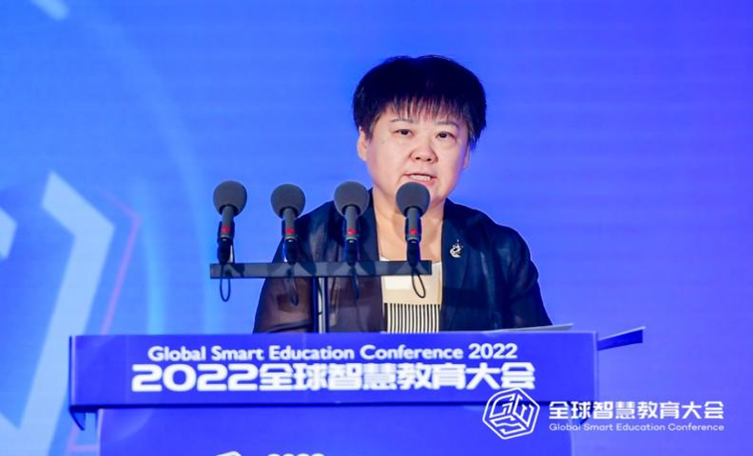
Ms SONG Shanping, executive dean of the China Institute of Education and Social Development (CIESD)
Ms SONG Shanping, executive dean of the China Institute of Education and Social Development (CIESD), stressed that the tasks of the digital governance of education are realizing the transformation from “digitalization + education” to “education + digitalization” and developing digital education with humanistic characteristics. As the first high-end think tank dedicated to the research of education and social governance in China, CIESD will conduct research on governance strategies of education reform and development, release high-quality outcomes, and provide strong support for promoting the educational governance system, accelerating the modernization of education and building a powerful nation of education.
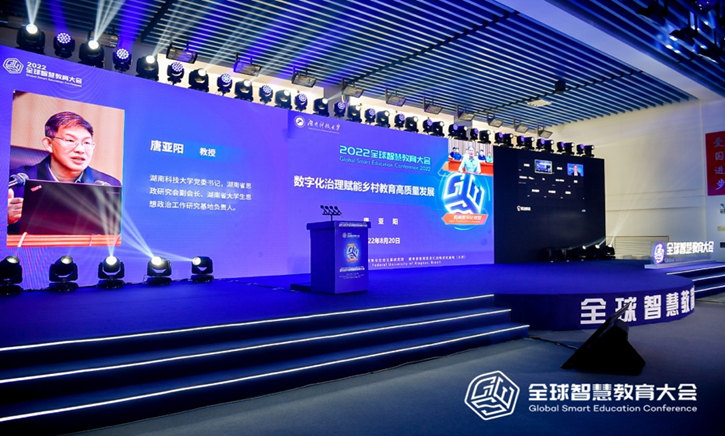
Professor TANG Yayang, secretary of the party committee of Hunan university of science and technology
Professor TANG Yayang, secretary of the party committee of Hunan university of science and technology, noted that rural areas are at a relative disadvantage in the construction and governance of the digital education environment. To achieve rural revitalization, improve education equity and promote the realization of the national strategic goal of high-quality development of education, we must pay attention to three governance directions: (1) rural education is the focus of modernization of educational governance; (2) digital environment is the difficulty of the governance of rural education; and (3) students are the central focus of construction of digital environment of rural education. Based on the three directions, he suggested we should make plans, focus on key points, promote implementation, and effectively carry out digital governance to promote the high-quality development of rural education, especially on the problems and obstacles in rural areas.
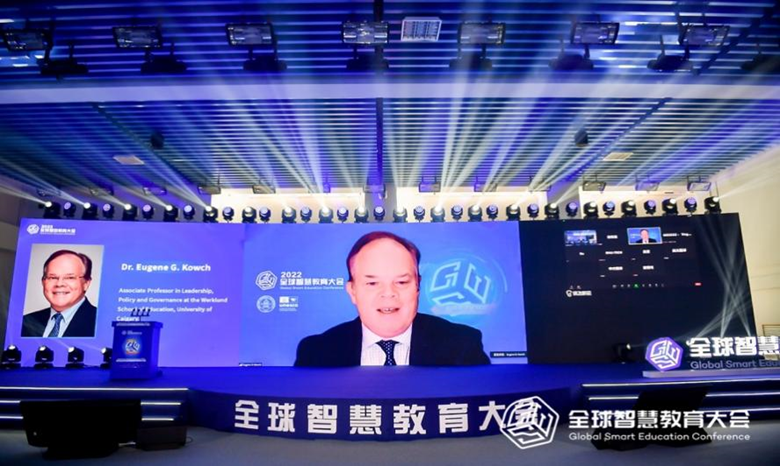
Dr. Eugene G. Kowch
Dr. Eugene G. Kowch shared his thoughts on the innovation policy-making framework for AI-enhanced education. He stressed that policy formulation should change the focus from linear to non–linear system to include inequity, poverty, and environmental problems. The economy, society, culture and other factors should be considered to form a policy network. He argued that the key to integrating education and AI is cultivating effective managers and educational governance mechanisms.
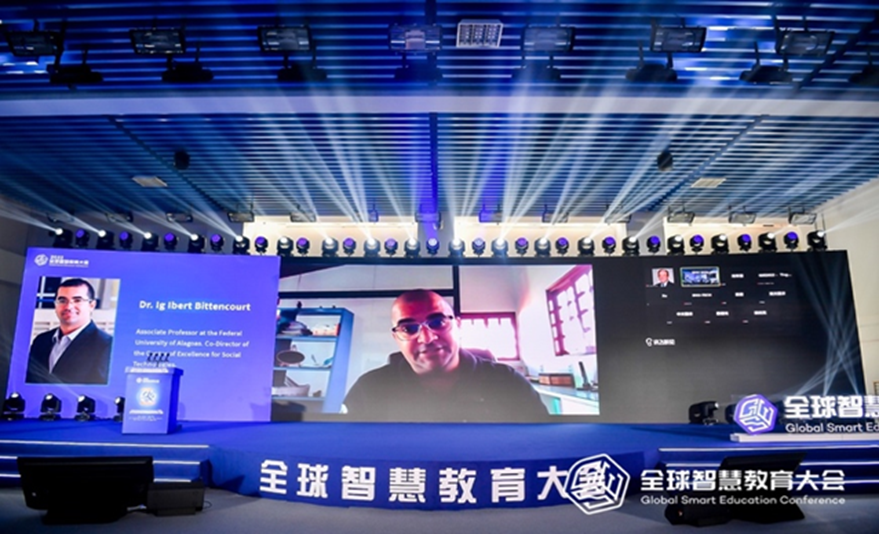
Dr. Ig Ibert Bittencourt
Dr. Ig Ibert Bittencourt noted that smart education should focus on improving the quality of teachers and students based on the local needs. The Federal University of Alagoas in Brazil has developed a series of applications and systems in response to problems such as education imbalance and insufficient writing skills of students, which aims to improve the teaching quality, better realize the implementation of educational policies and applications, effectively promote the research and development based on the real demand, and improve the level of digital governance of education.
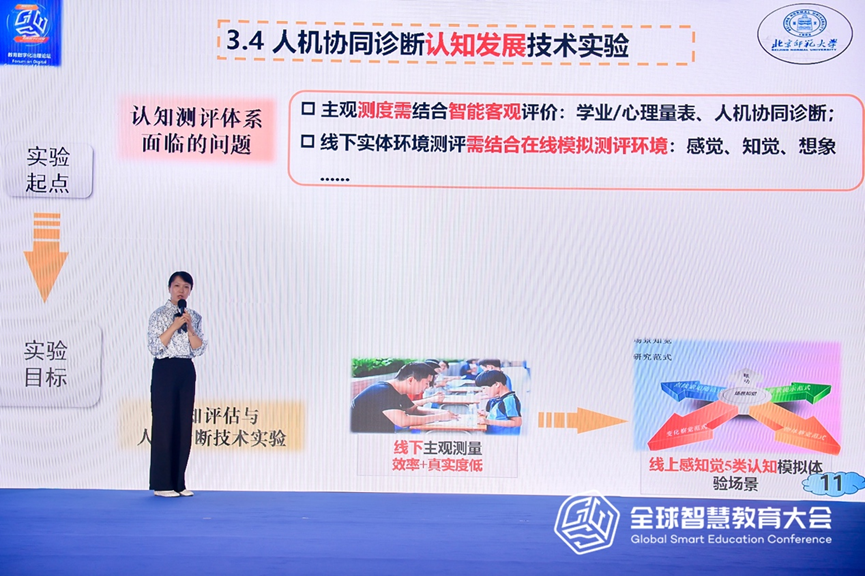
Ms TONG Lili, associate professor from Beijing Normal University
Ms TONG Lili, associate professor from Beijing Normal University, delivered a speech on “The Application and Governance Strategy of Full-cycle Internet Education from the Perspective of Technological Experiments”. In response to the new requirements of digital governance of education and the latest developing trend of Internet + education, she shared five key technical experiments of closed-loop governance, including a review of multimodality teaching content, protection of personal information, user behavior portrait and algorithm analysis, and risk monitoring for Internet education applications. These technical experiments are aimed to actively explore the governance strategies of full cycle Internet + education, open up the design concepts and practical applications of the technology used for Internet + education, and establish a full-cycle governance model for the application of Internet + education.
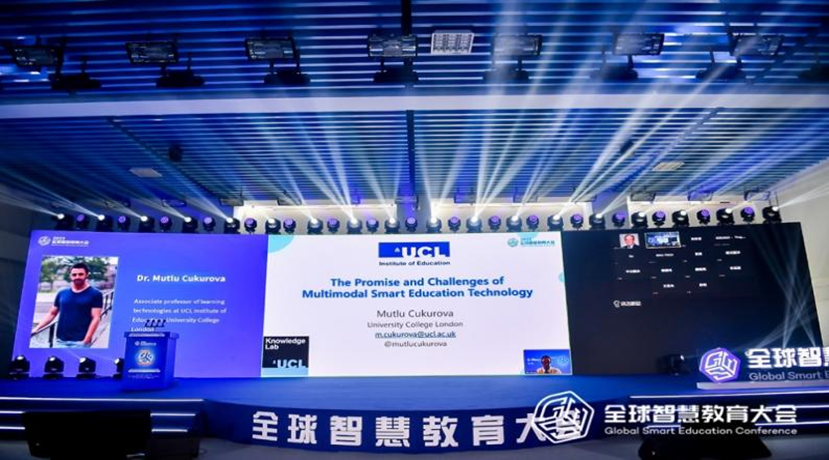
Dr. Mutlu Cukurova, associate professor from University College London
Dr. Mutlu Cukurova, associate professor from University College London, found that the use of intelligent technology in the teaching process can increase interactivity and improve teaching efficiency. The integration of intelligent technology into classroom activities will encourage the innovative design of teaching scenarios, provide a practical basis for analyzing human behavior, and build a visual module of human emotions and IQ, thereby effectively improving the fairness and efficiency of the classroom.
Pathway and solution for digital governance of education
The penal discussion focused on the “pathway and solution for digital governance of education” and discussed its mechanism construction, current plan, optimization and exploration from multiple perspectives, including governance of regional education, teaching scenarios in the school context, and the application of digital technology.
Pathway and solution for digital governance of education
The penal discussion focused on the “pathway and solution for digital governance of education” and discussed its mechanism construction, current plan, optimization and exploration from multiple perspectives, including governance of regional education, teaching scenarios in the school context, and the application of digital technology.
